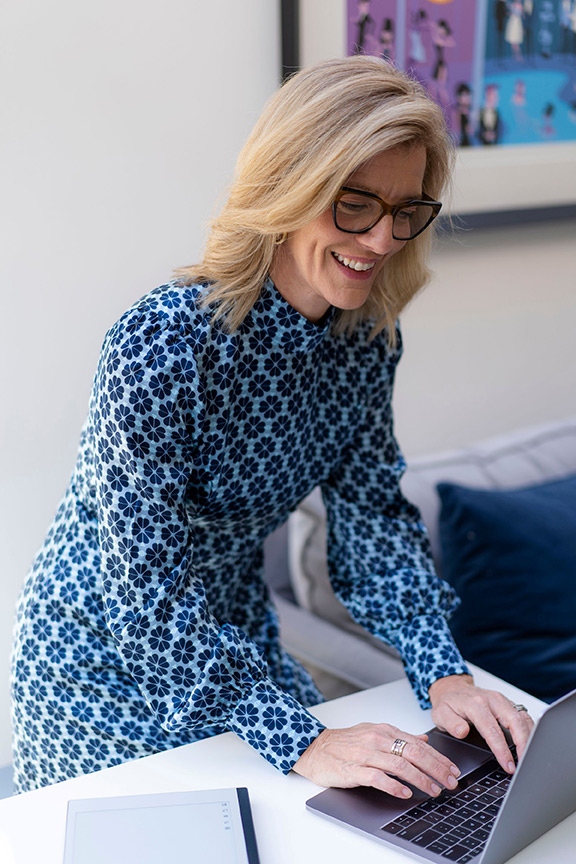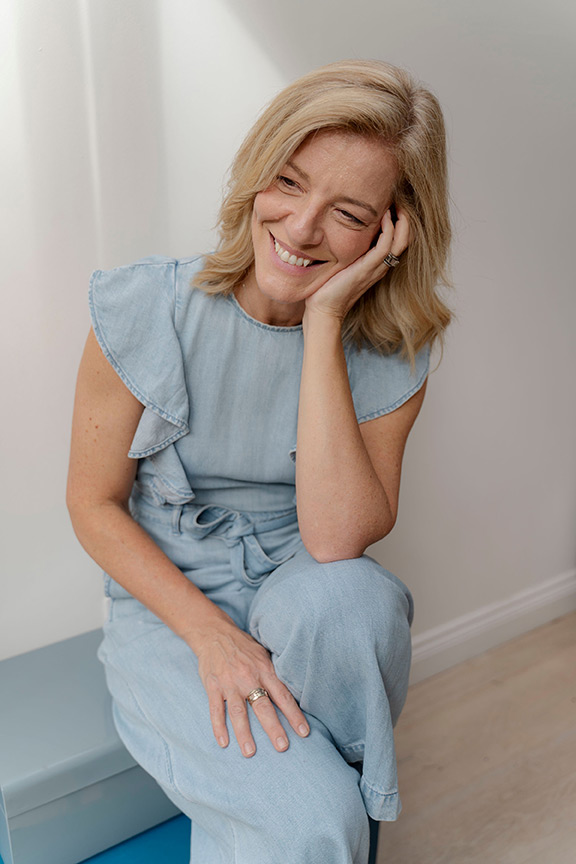When people walk through our door, we often start by asking about their goals. A simple question perhaps, but one that can be difficult to answer. When going through change, especially retirement or making work optional, people may have the chance, sometimes for the first time in their life, to design their desired lifestyle. Starting from a blank slate, what would your desired lifestyle look like? It can feel too big a question. For this reason, we have invited Lisa de Laroy, Leadership and Career Coach at Core Guidance, to explore some concepts and tools that could help get you started.
I am not sure what I want out of life. How can I start figuring this out?
It’s really common for people to say they don’t know what they want. And often ‘under all the noise’ they do and can figure it out. It may start by feeling easier to stay busy and in the usual routines but with focus and attention things can start to change.
If you are considering what you want, it helps to start by slowing down your mind – ‘giving it space’ and asking the question. Over-thinking or forcing answers may block thoughtful or inspired ideas. Simple things to consider are: How do I want to be living my life in 6 months, 1 year, 2 years. How do I want to feel and why do I want this? What things do I enjoy and want to do?
Any way you can slow down, perhaps at the end of the night or on a walk you can ponder the question. Try this every day for a week. It can help to make notes and read over them at the end of the week.
I find that often people do what they do because they have been influenced by others, society or the past that no longer resonates for them. And rather than being influenced by the past or circumstances, it’s a really powerful shift to create what you want and take action from there. I call this the Top Down Approach.
I always guide clients to understand their inner needs and goals and then create external goals. It’s not sustainable to focus on external and material goals, they often end up short-lived.
You will learn to know what you want by paying attention to the things that feel good, beyond the thinking and busy mind.

When I start thinking about my goals, it is easy for me to slip into mainstream ideas of success. How can I break out of that?
It can be helpful to think about what success means to you – beyond the material or societal expectations. I really believe and witness people taking success to the next level because when they link inner and outer goals, it has a whole lot more meaning. What once seemed either impossible, or just a dream can start to turnaround with the right focus.
This always comes back to thinking about what feels good for you. Human dynamics can get in the way, for example – the brain naturally responds to the familiar as being safe. Fear and excitement are closely linked and your growth edge is right there too. It’s normal to feel doubt as you move into something new and exciting. It’s how you work with it that matters.
If you rely on ‘unhealthy’ success as your only metric, it can feel like a never-ending cycle. When you link goals and strategy with inner success, you are starting from a more stable base.
What I see is that when inner needs are met, success is inevitable – for whatever success means for the individual. Such a detachment (not lack of focus) from material success offers a whole new and purposeful way of life. If you want success to ‘fill’ deeper needs, it won’t ever do that.
I just want myself and my loved ones to be happy. How do I work out what that means in practice?
This is a great question. Certainty and security are usually the deeper desire or foundation for people to create a level of happiness and to aspire to more. Important things to think about include your values, why you want the goals you have and how you feel energetically from a wellbeing perspective. Does “life” give you energy or not?
And what level of income/wealth do you want to support this? Life tends to mirror back the way we approach it. If we are unsure or vague about what we want, we get vague results. The more we can identify what we want, the easier it is to choose decisions that are a match.
To gain more perspective on this, make a list of the things that you think make you and your loved ones happy and why. Ask yourself, is this true and if so, what steps can you take towards this?

My identity and purpose are heavily tied to my work. I’m worried I’ll be “lost” if my role changes or if I retire.
This is understandable and a very common scenario. A big part of identity can feel lost through change and this is a great time to consider what you choose as your new identity.
You aren’t ever ‘lost’. You aren’t your job, you and your life are much greater than that. When you realise you are not your job, and more than that, life takes on another meaning.
Under the work or identity you were (or are) in – why did you want that? Thinking about why you wanted it, is this still what you want? Keep breaking down the layers and you can see the core needs a new path/interest or identity that you want to move into.
Purpose and identity can shift at any time and by choice – this is where it’s possible to create a life beyond what has been ‘known’ and familiar. With awareness, it’s empowering to realise that you can change any or all parts of your life at any stage. Whether you are considering a new job, a change in career or life direction and purpose – your decision and intention are the links to inner goals that take life to the next level. Profound changes can happen with a simple decision.
One of the core human needs is progress. We are meant to growth and thrive. Staying in the same place will eventually lead to feeling stuck or confusion and will feel uncomfortable. The question is, are you open to trusting yourself and doing something new? This is not to necessarily doing everything yourself but to trust in yourself- your decisions and your resourcefulness to pursue future dreams and goals.
Once I have an idea of what my desired lifestyle looks like, what is the best way to share this with my loved ones?
It’s always helpful to share from a place of connection, rather than to discuss from a place of finality, disruption or conflict. Especially when you don’t know how your loved ones will respond. As reflected to yourself in earlier questions proposed, let them know not only what you want but why you want this – the deeper meaning is what really matters not only for you to understand, for those you love also. You can also offer curiosity into how they feel and also what they want as this will also allow you to understand their needs and consider how the plans can fit together.

How can a life coach help people figure out what they want out of life?
Most people rarely give themselves time and space to make sense of their ideas and aspirations. Many also think it’s simply not possible based on their own beliefs of those shared by people around them. Working with a coach offers a safe, non-judgemental space to unpack what’s going on – often for the first time.
Life is always evolving. The past and personal conditioning can get in the way of what’s really possible. I provide a number of questions and approaches to help with awareness and clarity to shift past programming so you can make change, faster and often in profound ways.
I think it’s helpful to ask for help in areas that don’t come naturally. Why waste energy trying to figure everything out alone when someone else can fast-track your results and you get to do more of what you enjoy, spending more time on the people and things that matter.
To end: If you could say, these have been the best years of my life – what would you like for your life in 6 months, 1 year, 2 years? This is about possibility and creating a strategy, not leaving dreams until a later date.

Lisa de Laroy
Leadership and Career Coach
contact@core-guidance.com
https://www.core-guidance.com

